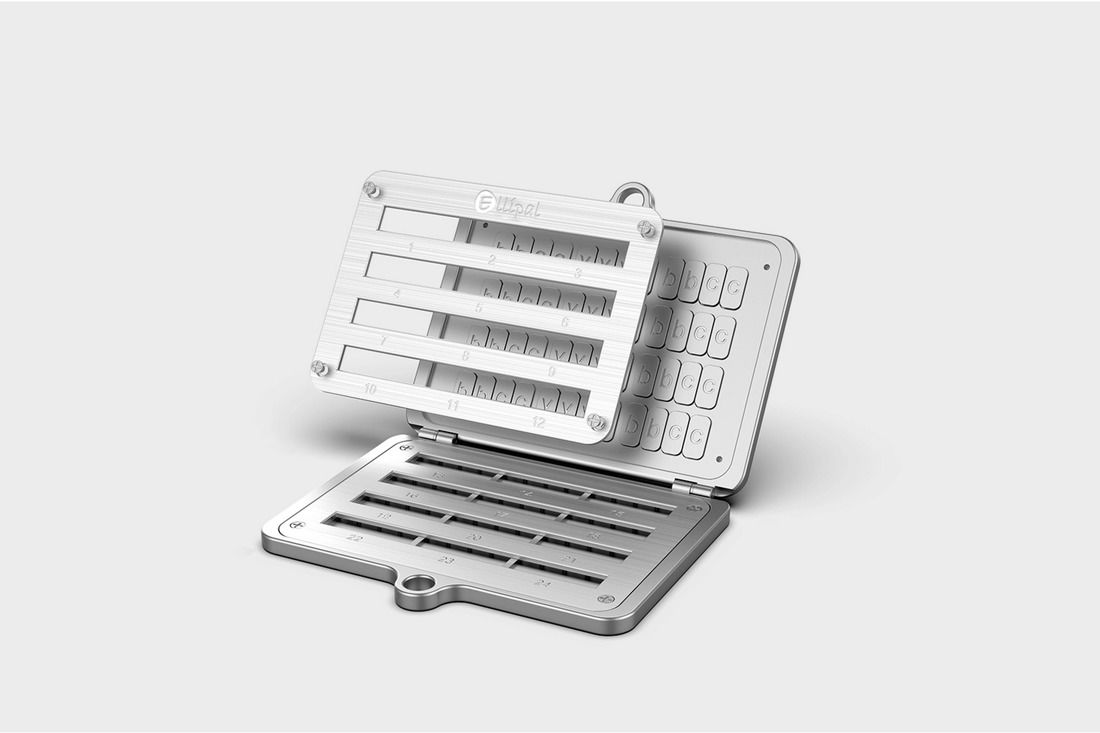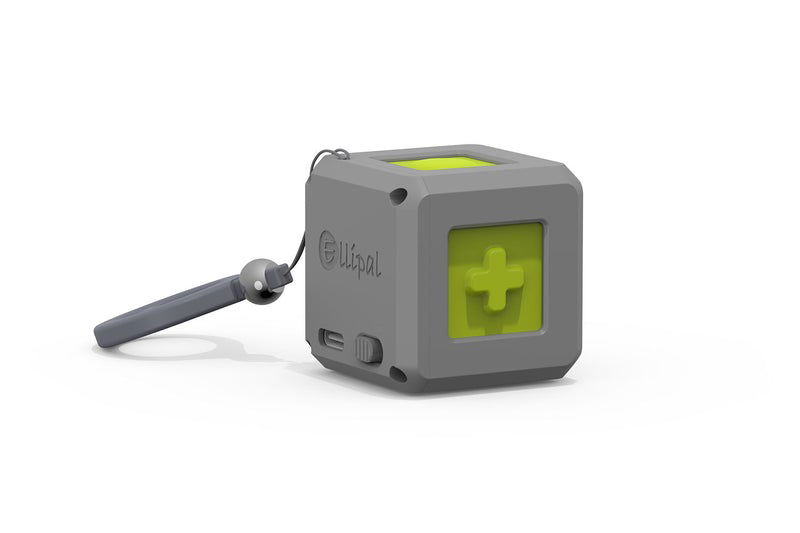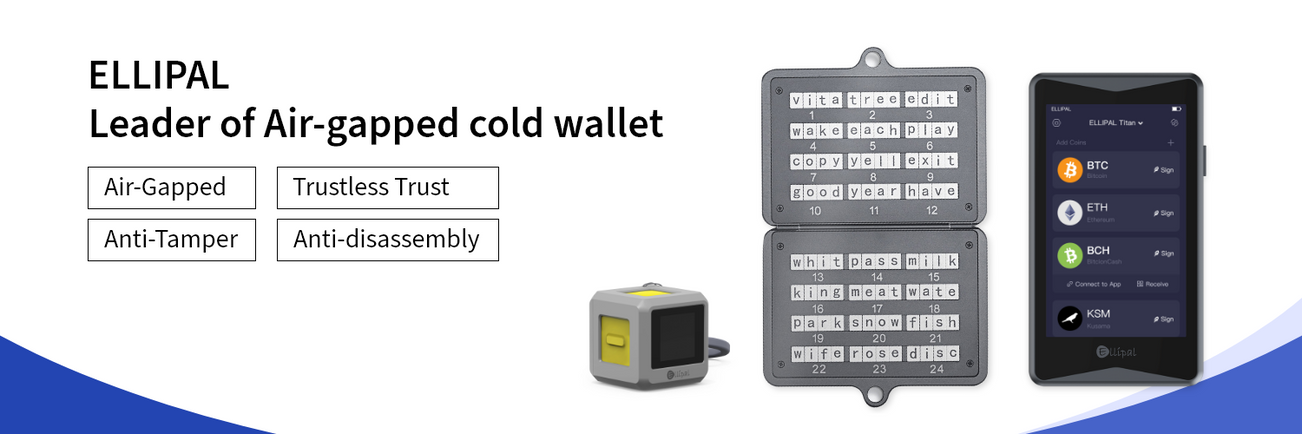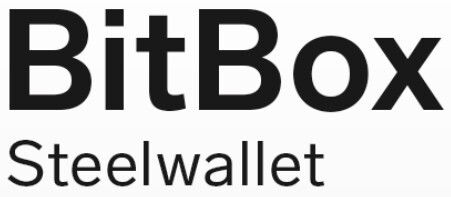What is a crypto wallet, a cold wallet, a private key, and a seed phrase?

Crypto wallet, cold wallet, private key and seed phrase are the key concepts that the owner of crypto assets should know. Learn more about them in our article.
In addition, by clicking on this link, you can get discounts of up to 30% when buying all the products of the ELLIPAL in the official online store of this manufacturer.
Content
1. What is a Crypto Wallet?
- How Does a Crypto Wallet Work?
- Different Types of Crypto Wallet
- What are The Downsides/Upsides of a Crypto wallet
- Are Crypto Wallets Safe?
- What is The Point of Putting Crypto in a Wallet?
2. What is a Seed Phrase?
- Seed Phrase vs. Private keys
- What is the Importance of a Seed Phrase? Why is a Seed Phrase Necessary? What Happens if Someone Gets Your Seed Phrase?
- How to Get a Seed Phrase?
- How to Protect Seed Phrases?
3. What is Private Key?
- Private Key vs Public Key
- The importance and significance of private keys
- Private Keys and Crypto Wallet
1. What is a Crypto Wallet?
A crypto wallet is one of the most important tools if you are looking to get serious about cryptocurrency. It is a tool that allows you to secure your cryptocurrency and process your blockchain transactions. Whether you are investing in coins like Bitcoin, Ethereum, XRP, Binance, and more, there are wallets that support them.
Although it is called a wallet, it is more like a personal bank. Because crypto is a decentralized currency, only you can take care of your coins, therefore using a wallet is like having your own personal bank.
How Does a Crypto Wallet Work?
Without getting into much detail about blockchain technology, we can understand how a crypto wallet works by just understanding the concept of private keys and public keys.
Whenever you want to store your crypto, you will need to create a wallet account. Every crypto wallet will have an option for you to create a new account. When you press on your wallet to create a new account, the wallet will generate your very own private key.
The Private key, as the name suggests is a very private piece of information. It is unique only to you. It is a set of random letters and numbers and it becomes the identity of your wallet. It is essentially the wallet itself because it can approve your transactions on the blockchain as well as recover your wallet if it ever gets lost.
From the private key, the public key is derived. The public key is another set of random letters and numbers that allows other wallets to recognize your wallet on the blockchain. The public key can be derived again to become your wallet address. Your friends, colleagues, and family can send you crypto using your wallet address as the destination.
Simply conclude, the private key is what creates and controls your wallet. It authorizes you to do transactions on the blockchain (sending out coins). On the other hand, the public key helps others identify you on the blockchain (receiving coins). Together, they create a healthy, working wallet.
Different Types of Crypto Wallet
There are two main types of wallet, with the exception of one type which we will not consider a "wallet". That exception is an "exchange wallet". These are wallets that help you store crypto on exchanges. However, they do not work like normal wallets because they are mostly centralized and dependent on the exchange, so we will not consider them as a wallet.
Hot Wallets
Hot wallets are what we describe as wallets that are installed on online devices. There are many free PC wallets, web-based wallets, or APP wallets that you can download and set up your wallet for free. They are easy to use and easily accessible. They are described as "hot" because the device these wallets are installed on is mostly connected to the internet most of the time.
Connected to the internet is both good and bad. It is good because it allows you to make transactions quickly to the blockchain, as you are already online. However, it is bad because it leaves you at risk of online hacking.
Examples of hot wallets are Atomic Wallet, Trust Wallet, and Metamask.
Cold Wallet
Cold wallets are hardware devices that are designed and manufactured for the sole purpose of storing crypto and managing transactions. They are described as "cold" because they are always offline. Unlike hot wallets, cold wallets do not have the risk of getting hacked online.
Since cold wallets are offline devices, by logic they cannot connect to the blockchain to process transactions. To get over this hurdle, cold wallet works with PC software or a mobile APP and has them work as a proxy. Using a cold wallet adds another step when dealing with transactions compared to a hot wallet, but the security you attain from that is immeasurable.
A good example of a cold wallet is the ELLIPAL Titan Cold Wallet, as well as the ELLIPAL Titan Mini.
What are The Downsides/Upsides of a Crypto wallet
The downsides and the upsides depend on what you are looking to do as a crypto investor. People use crypto wallets because they want to keep their assets safe and under their control. However, it does add extra steps and effort if you want to store coins in a wallet and also make transactions from the wallet.
Long-term investors mostly care about security and will not do many transactions in a year, so wallets are perfect for them. On the other hand, day traders will need to do transactions several times a day and need to catch the optimal time to trade so wallets might be a hassle for them.
Are Crypto Wallets Safe?
Crypto wallets are meant for security, so obviously they are safe. Cold wallets are especially safe thanks to their offline nature. Most of the time, hot wallets are good enough for normal investors. However, if you start to accumulate a large amount of crypto, it is better to switch to cold wallets because you can easily become a target of online hackers.
If security is what you are looking for, the ELLIPAL Titan is a very good example of a cold wallet. It is designed to be 100% air-gapped, meaning that it cannot be connected to any type of connection, whether it will be USB, Bluetooth, or Wifi. It is also protected with an anti-tamper protection system which helps delete all of your data the moment it detects a breach. This means the ELLIPAL Titan can protect your crypto from both online and offline hackers, making it one of the most secure solutions around for keeping crypto.
What is The Point of Putting Crypto in a Wallet?
Crypto is a decentralized currency so you, as the owner, have full responsibility for your crypto. There are no banks that will protect your crypto for you, or give you insurance. Everything in crypto must be done by yourself.
Because of this, it is very important to keep your cryptocurrency as secure as possible and not let anybody steal it. Crypto wallets are the perfect solution for this because it helps you secure your assets while giving you easy access whenever you need to use them.
2. What is a Seed Phrase?
As we all know, crypto wallets like the ELLIPAL Titan help you generate private keys and store them securely inside, allowing you the access your assets at any time. However, if you lose your wallet, is your asset gone forever?
The answer is no, nothing should come between you and your asset, not even losing access to your wallet. Everything can be recovered using the Seed Phrase.
Seed phrase and also known as recover phrase. They are a random set of 14, 18, or 24 words that are given to you by your wallet when you create a new account. It is a mnemonic version of the private key generated by your wallet for the sake of backup.
Seed Phrase vs. Private keys
As described, seed phrases are derived from the private keys. They are the mnemonic version of the private key so that it is easier to remember for human users. Seed phrases are given to the user at the beginning so that they can be used to recover lost funds if the wallet is lost or stolen. Seed phrases can be regenerated back into private keys, which will, in turn, regenerate the lost wallet.
Private keys on the other hand are not meant to be seen by humans at all. They give direct access to the wallet it is linked to so it is very sensitive information.
What is the Importance of a Seed Phrase? Why is a Seed Phrase Necessary? What Happens if Someone Gets Your Seed Phrase?
The seed phrase is very important because it can help you regenerate your account if you happen to lose it. It is very useful because it can be used on any kind and brand of wallet. You and your assets are never bound to a single brand of wallet.
If the wallet you are using has server problems or you have security doubts about your wallet, you can use the seed phrase to move your asset to a new trustworthy wallet.
Due to this flexibility of the seed phrase, it is very important to keep the seed phrase only to yourself and protect it well. If someone else gets a hand on your seed phrase, they will be able to recover your account on their wallet and steal all of your cryptos.
Users must be wary of many phishing scams online that will try to get your seed phrase at every opportunity. Just remember that do not give away your seed phrase, no matter what anyone tells you.
How to Get a Seed Phrase?
Whenever you create a new account in your wallet, the wallet will generate your private keys. This private key will then be automatically changed into a seed phrase. Before you can start using your account, the wallet will show you your seed phrase and you must note it down immediately because the wallet will not show you the seed phrase again.
How to Protect Seed Phrases?
It is very important to protect your seed phrases properly because it is the only backup to your crypto, and if stolen, your whole account is in danger.
Most people will write down their seed phrases on a piece of paper and store it somewhere hidden and safe. Nonetheless, paper is prone to damage and degradation.
The best way to store and protect your seed phrases is by using a steel wallet like the ELLIPAL Seed Phrase Steel. Steel wallets like this allow you to engrave your seed phrase in steel so it will never be damaged by water or fire.
3. What is Private Key?
When it comes to wallets, nothing is possible without private keys. They are the very essence that makes the wallet and what allows you to store your assets securely. By understanding more about private key and what it does, you will know more about how to keep your crypto secure.
A private key is a randomly generated string of numbers and letters that is used to secure access to a digital wallet or account. It is created using a cryptographic algorithm that produces a unique and mathematically related public key.
To generate a private key, a random number generator first produces a series of random numbers that serve as the basis for the private key. These random numbers are then processed using a mathematical algorithm, such as the Elliptic Curve Digital Signature Algorithm (ECDSA), to generate the private key.
The private key is then later stored securely inside a wallet to prevent anyone from stealing. The private key is used to sign and authorize transactions on the blockchain and is required to access and manage your cryptos and NFTs.
Private Key vs Public Key
Private Key and Public Key are two sides of the same coin. The private key is generated first then the public key is later derived from it using a mathematical process known as asymmetric encryption. The public key is also very important for a wallet as it allows other people to transfer assets to your wallet.
Imagine a mailbox at your house. The private key is like the key that you use to open your mailbox. You need it to access whatever is inside the mailbox, in this case, your crypto assets. The public key is like the mailbox address, other people need this address to be able to send you mail.
While the private key must be kept secure by only yourself, at all times, the public key can be shared with other people. You do not want other people to open your mailbox with your key, but it is ok for other people to know your mailbox address so they can send you mail. This is a simple but accurate analogy of private keys and public keys.
The importance and significance of private keys
Private keys technically have importance for a wallet. Without private keys, we will not have a secure way and decentralized way to store our cryptocurrency. Apart from wallets that are generated from private keys, you can store cryptocurrency with an exchange. When you store your crypto with an exchange, your crypto is under their system. This means that if the exchange is not trustworthy or is an easy target of hacking, you may easily lose your crypto. You do not have full control of your assets because you cannot control what happens to the exchange.
With a private key, however, you have full control of your assets. The randomly generated private key is unique only to you, which makes your wallet only accessible to you. As long as you keep your private key and your wallet safe, then you will not lose your crypto.
Private Keys and Crypto Wallet
Crypto wallets are made to generate private keys and host the wallet account that comes with the generated private keys. They are designed to keep the private keys safe so that no one else will have access to your crypto.
The degree to which the private keys are protected differs per wallet so you must also choose carefully which wallet is most suited to keep your private keys safe.
Wallets like the ELLIPAL Titan Cold Wallet are perfect for protecting private keys. The ELLIPAL is completely air-gapped, and cannot be connected to any kind of network or devices. This protects your private keys from online hackers. The ELLIPAL also comes with an anti-tamper feature that automatically deletes your data the moment it detects a breach. This feature protects your private keys from offline hacking. In addition to safety, the ELLIPAL is very simple to use and has a good design. It is a highly recommended wallet for both beginners and experts in crypto.
Gadgets like ELLIPAL JOY Seed Phrase Generator are also very important nowadays. ELLIPAL JOY is a small device that helps you generate private keys. When generating private keys, you will also need to consider if the keys are generated from a trustworthy source. The ELLIPAL JOY is an open-source private key generation device, so you can be sure that your private key is truly secure and trustworthy.
By clicking on this link, you can get discounts of up to 30% when buying all the products of the ELLIPAL in the official online store of this manufacturer.
Learn more about the best TOP 30 hardware cryptocurrency wallets
You can see this list here.
TOP 29 Hardware Wallets, the Official Online Stores
| 1 |  | Trezor hardware wallet, the official online store |  |
| 2 |  | Ledger hardware wallet, the official online store |  |
| 3 |  | KeepKey hardware wallet, the official online store |  |
| 4 |  | BitBox02 hardware wallet, the official online store |  |
| 5 |  | CoolWallet hardware wallet, the official online store |  |
| 6 |  | ELLIPAL hardware wallet, the official online store |  |
| 7 |  | D'CENT hardware wallet, the official online store. |  |
| 8 |  | SafePal hardware wallet, the official online store |  |
| 9 |  | SecuX hardware wallet, the official online store |  |
| 10 |  | BC Vault hardware wallet, the official online store |  |
| 11 | 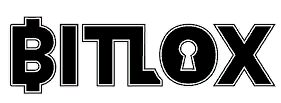 | BitLox hardware wallet, the official online store |  |
| 12 |  | Keystone hardware wallet, the official online store |  |
| 13 |  | ProKey hardware wallet, the official online store |  |
| 14 |  | NGRAVE hardware wallet, the official online store |  |
| 15 |  | Keevo hardware wallet, the official online store |  |
| 16 |  | GridPlus hardware wallet, the official online store |  |
| 17 |  | Ballet hardware wallet, the official online store |  |
| 18 |  | OPOLO hardware wallet, the official online store |  |
| 19 |  | Foundation (Passport) hardware wallet, the official online store |  |
| 20 |  | ImKey hardware wallet, the official online store |  |
| 21 |  | Tangem hardware wallet, the official online store |  |
| 22 |  | HashWallet hardware wallet, the official online store |  |
| 23 |  | Material Bitcoin hardware wallet, the official online store |  |
| 24 |  | ShieldFolio hardware wallet, the official online store |  |
| 25 |  | OneKey hardware wallet, the official online store |  |
| 26 |  | Blockstream Jade hardware wallet, the official online store |  |
| 27 |  | Cypherock hardware wallet, the official online store |  |
| 28 |  | Keepser hardware wallet, the official online store |  |
| 29 |  | NEXA hardware wallet, the official online store |  |


